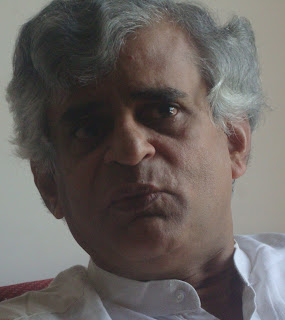This interview came in 'Financial World' , an financial daily by Tehelka group of publications on 6th September 2011. The web version is not available.
Don’t rush with the cash
REETIKA KHERA, ASST PROFESSOR, IIT, NEW DELHI TALKS TO PRADEEP BAISAKH ON THE FINDINGS OF A SURVEY ON THE FUNCTIONING OF THE PUBLIC DISTRIBUTION SYSTEM IN 100 INDIA VILLAGES ACROSS NINE STATES.
You recently conducted survey covering about 100 villages in nine states like Chhatisgarh, Odisha, Andhra Pradesh, Jharkhand, Bihar , Uttar Pradesh, Rajasthan. What did you find?
You forgot to mention two important states that were part of the survey: Himachal Pradesh and Tamil Nadu. The survey was important because the proposed National Food Security Act (NFSA) is currently being drafted and because of the debate about cash transfers as an alternative to the PDS. There were three important reasons for the PDS survey: to get feedback from the ground on the functioning of the PDS, to learn what makes the PDS work well in some states and not so well in others and to know the views on cash transfers as an alternative to food. We found that the PDS plays a crucial role in ensuring food security. The general perception of half of PDS grain (we did not have a chance to probe non-grain PDS commodities in as much detail) not reaching the poor is no longer true in most of these states; BPL households reported getting 86% of their grain entitlements. On cash, except in Bihar , people were quite resistant to the idea – overall, 67% opted for food, 18% for cash and the rest were either not clear or made conditional choices.
You have written to the Prime Minister sharing with him brief observations on the revival of PDS system urging him not to switch over to the cash transfer mode from the current system of distribution of ration. Have you got any response from the PMO?
Well, the letter to the PM urged against a hasty transition to cash transfers. And no, we have not received any response.
What, according to your survey, are people’s views on cash transfers?
An important learning from our conversations this summer was that it is not easy to make a single statement about the impact cash transfers on food security. The answer to that question depends on many things: for instance, who is asked that question (is it a marginal farmer or a single woman), where they live (in a village with poor access or close to a market town), how the PDS works in that area, etc. A large majority of the respondents, though they could see the potential benefits of cash transfers (e.g., being able to purchase a more diversified food basket), were extremely apprehensive - in some cases, people even ‘feared’ cash - about the impact of cash transfers on food security. Bihar is an exception to this general pattern. These apprehensions stemmed primarily from the fact that most parts of rural India
Shall it have any bearing on the Minimum Support Price (MSP) of farm product and consequently on the farming community?
Will the government's procurement operations continue if there is no PDS? Procurement is undertaken for the PDS and to stabilize market prices through open market sales (its another story that the government failed to do that when prices of wheat and rice shot up two years ago). There isn’t any concrete proposal on the details of a cash transfer regime.
Is the cash transfer system working well in countries like Mexico
In Mexico India India Mexico
Why is government keen on cash transfers?
Though there is no specific proposal yet (cash transfer or food coupons), there is certainly a big push towards dismantling the PDS. This would be criminally unfair to states such as Andhra Pradesh, Chhattisgarh, Himachal, Tamil Nadu where people rely on the PDS shop for subsidized wheat/rice, dals, oils, etc. I will be surprised if the Centre finds any takers in those states for such a proposal. In fact, I believe the Chhattisgarh Chief Minister has written to the planning commission that he is opposed to cash in lieu of the PDS. State governments seem to understand people’s needs better than the Centre.



